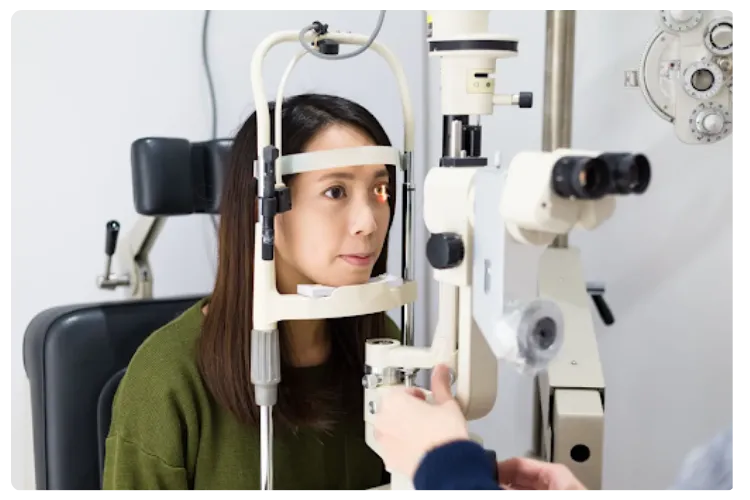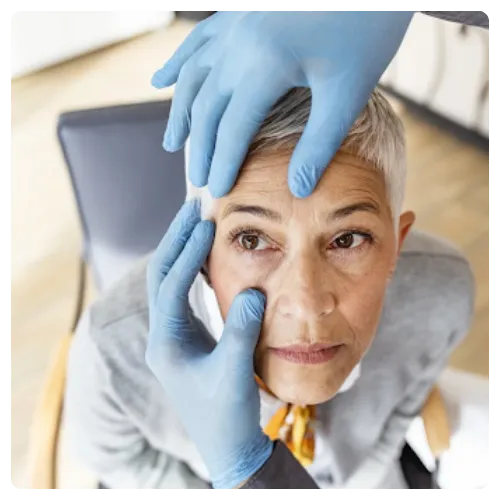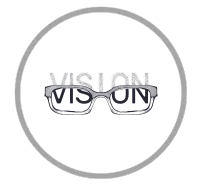A Comprehensive Comparison
What You Should Know About Living with Glaucoma
FSDAVCFEBFEVSDDVFSD
FSDAVCFEBFEVSDDVFSD
FSDAVCFEBFEVSDDVFSD
Living with Glaucoma:
Tips for Everyday Eye Care
Living with glaucoma can present challenges, but it’s important to remember that with the right care and awareness, you can manage the condition effectively. Glaucoma is a group of eye diseases that cause damage to the optic nerve, often linked to increased intraocular pressure. If left untreated, this can lead to vision loss
or blindness. Early detection through regular eye exams plays a crucial role in managing the condition and slowing its progression. With proper treatment, many people with glaucoma can maintain their quality of life and preserve their vision.
Managing glaucoma involves consistent monitoring and proactive care. While it may not have obvious symptoms in its early stages, being proactive and adhering to a treatment plan are key to avoiding further damage. Regular visits to your eye doctor, coupled with lifestyle adjustments, can help reduce the risks of more serious complications. By maintaining a careful balance between medication and lifestyle changes, you can manage glaucoma and prevent it from affecting your day-to-day activities.

Living with Glaucoma:
Tips for Everyday Eye Care
Living with glaucoma can present challenges, but it’s important to remember that with the right care and awareness, you can manage the condition effectively. Glaucoma is a group of eye diseases that cause damage to the optic nerve, often linked to increased intraocular pressure. If left untreated, this can lead to vision loss or blindness. Early detection through regular eye exams plays a crucial role in managing the condition and slowing its progression. With proper treatment, many people with glaucoma can maintain their quality of life and preserve their vision.

Managing glaucoma involves consistent monitoring and proactive care. While it may not have obvious symptoms in its early stages, being proactive and adhering to a treatment plan are key to avoiding further damage. Regular visits to your eye doctor, coupled with lifestyle adjustments, can help reduce the risks of more serious complications. By maintaining a careful balance between medication and lifestyle changes, you can manage glaucoma and prevent it from affecting your day-to-day activities.
Daily Eye Care Tips for Managing Glaucoma
Eye care for glaucoma requires a thoughtful and ongoing approach. Regular exercise, along with a healthy diet, can help in managing intraocular pressure, one of the main concerns for those with glaucoma. While low- to moderate-intensity physical activity is encouraged, it's important to avoid any exercises that could inadvertently raise eye pressure, such as heavy lifting or certain yoga positions. This lifestyle modification can support both your physical health and eye health, helping you maintain a stable condition.
Adhering to your prescribed medication schedule is another crucial aspect of managing glaucoma. These medications are designed to lower eye pressure, preventing further damage to the optic nerve. Missing doses can compromise their effectiveness, so it’s important to stay on track with your treatment plan. To help you remember, set up reminders or create a daily routine that ensures you stay consistent with your medication.
Protecting your eyes from injury and strain is also vital in glaucoma management. Whenever you engage in activities that could put strain on your eyes, like reading or using digital screens for extended periods, be sure to take regular breaks. For those who participate in sports or outdoor activities, wearing protective eyewear is essential to prevent injury. These measures can help maintain the health of your eyes and reduce the chances of complications.
Frequent check-ups with your eye doctor are essential to keeping track of your glaucoma. These appointments allow for any necessary adjustments to your treatment plan, ensuring that your eye pressure remains under control. If you experience any changes in vision or side effects from medications, it's important to communicate openly with your healthcare provider. This ongoing dialogue helps ensure that your treatment plan continues to meet your needs as your condition evolves.
Creating a supportive environment for yourself and educating those around you about glaucoma can make a big difference. Informing your family and friends about the challenges you face allows them to assist with reminders for medication and appointments, making it easier for you to stay on top of your care. The more they understand the condition, the better they can help you manage the day-to-day demands of living with glaucoma.
Glaucoma Treatment: Medication and Beyond
In addition to medication, laser therapy can offer a valuable solution for some patients. Procedures like trabeculoplasty are designed to improve the drainage of fluid in the eye, thereby reducing intraocular pressure. Laser therapy can be an effective treatment on its own or used alongside medication to help manage the condition.
For those with advanced glaucoma, surgical options may be necessary. Surgical procedures such as trabeculectomy or the implantation of drainage devices are used to relieve high intraocular pressure. These interventions can provide lasting relief, but like all surgeries, they come with certain risks and considerations that should be discussed with your eye doctor.
Incorporating lifestyle changes is an integral part of managing glaucoma. Maintaining a healthy weight, following a balanced diet, and engaging in regular physical activity are all beneficial.


In addition to medication, laser therapy can offer a valuable solution for some patients. Procedures like trabeculoplasty are designed to improve the drainage of fluid in the eye, thereby reducing intraocular pressure. Laser therapy can be an effective treatment on its own or used alongside medication to help manage the condition.
For those with advanced glaucoma, surgical options may be necessary. Surgical procedures such as trabeculectomy or the implantation of drainage devices are used to relieve high intraocular pressure. These interventions can provide lasting relief, but like all surgeries, they come with certain risks and considerations that should be discussed with your eye doctor.
Incorporating lifestyle changes is an integral part of managing glaucoma. Maintaining a healthy weight, following a balanced diet, and engaging in regular physical activity are all beneficial.
These habits not only support your eye health but also contribute to overall well-being, which is vital for managing a chronic condition like glaucoma. Additionally, avoiding behaviors that could spike blood pressure, such as heavy lifting, can prevent exacerbating your condition.
Regular eye exams are a cornerstone of glaucoma management. Through these exams, eye doctors can track changes in intraocular pressure and assess the health of the optic nerve. This monitoring allows them to make necessary adjustments to your treatment plan, ensuring that you receive the most effective care at every stage of the disease.
The Role of Regular Eye Exams in Glaucoma Management
Regular eye exams are an essential part of glaucoma management. These exams typically involve a series of tests to measure eye pressure, examine the optic nerve, and assess your visual field. Timely detection of any changes in these areas can help prevent further damage and allow for early intervention. If glaucoma is detected early, treatments can be started to slow or even halt the progression of the disease.
Monitoring the progression of glaucoma is a critical aspect of its management. As the condition progresses, changes in eye pressure and optic nerve health can provide insight into how well the treatment plan is working. Your eye doctor will use these exams to adjust your medication or recommend additional treatments if necessary. By staying on top of these check-ups, you can ensure that any changes in your condition are addressed as soon as possible.
Regular eye exams also give you the opportunity to discuss any concerns you may have with your doctor. This two-way communication helps create a treatment plan that is tailored to your specific needs. Whether it’s about side effects from medications or changes in your vision, these discussions ensure that you are an active participant in your own care. Regular check-ups help to ensure that the glaucoma management plan remains effective over time.
Coping Strategies for Living with Glaucoma
Living with glaucoma requires resilience, but with the right strategies, you can improve your quality of life. Staying informed about your condition and its treatments is one of the best ways to empower yourself. By educating yourself about glaucoma and keeping up with new research, you can make better-informed decisions about your care and feel more confident in managing your health.
Seeking emotional support is another important coping strategy. Living with a chronic condition can be emotionally challenging, but you don't have to do it alone. Connect with family, friends, or support groups where you can share your experiences and receive encouragement from others who understand what you're going through. The emotional support of others can make a significant difference in managing the stress of living with glaucoma.
Making small but meaningful lifestyle adjustments can also help you cope. Eating a balanced diet, staying physically active, and avoiding activities that may worsen your condition can all contribute to better eye health. These changes may also reduce stress, improve your mood, and make it easier to manage other aspects of your life.
Staying on top of regular medical appointments is key. Ensure you attend all eye exams and communicate any changes you notice in your vision or health. With your doctor’s help, you can make adjustments to your treatment plan as needed, ensuring that you’re always on the right track.
Finding Support and Resources for Glaucoma Patients
Finding the right support and resources is crucial for living well with glaucoma. Connecting with healthcare professionals who specialize in glaucoma care is a good first step. They can offer tailored advice and treatment options based on your unique needs. A glaucoma specialist can help you navigate the complexities of the disease and provide ongoing support.
Utilizing educational resources from reputable organizations is also beneficial. Resources like the Glaucoma Research Foundation or the American Academy of Ophthalmology provide valuable information about glaucoma management, treatment options, and the latest research. Being well-informed about the disease helps you make better decisions about your treatment and care.
In addition to professional support, online communities and forums can offer emotional support and practical advice from others who are dealing with the same condition. These platforms allow you to connect with other people who understand the challenges of living with glaucoma. Sharing experiences and learning from others can provide valuable insights and help you feel less isolated.

Contact Info
Hours of Operation
Mon - Fri | 9:00 AM - 5:00 PM
Sat - Sun | Closed
Holiday Hours: We are closed for the following holidays: New Years Day, Memorial Day, Independence Day, Labor Day, Thanksgiving Day, Christmas Day
© 2026 Kleinwood Vision. All rights Reserved.


